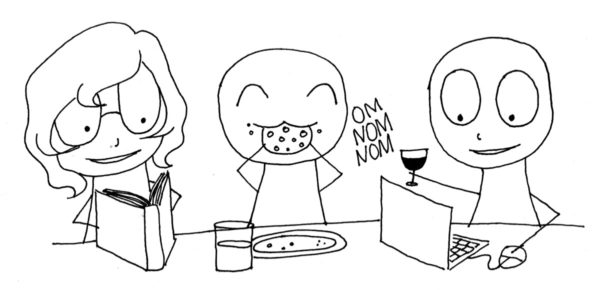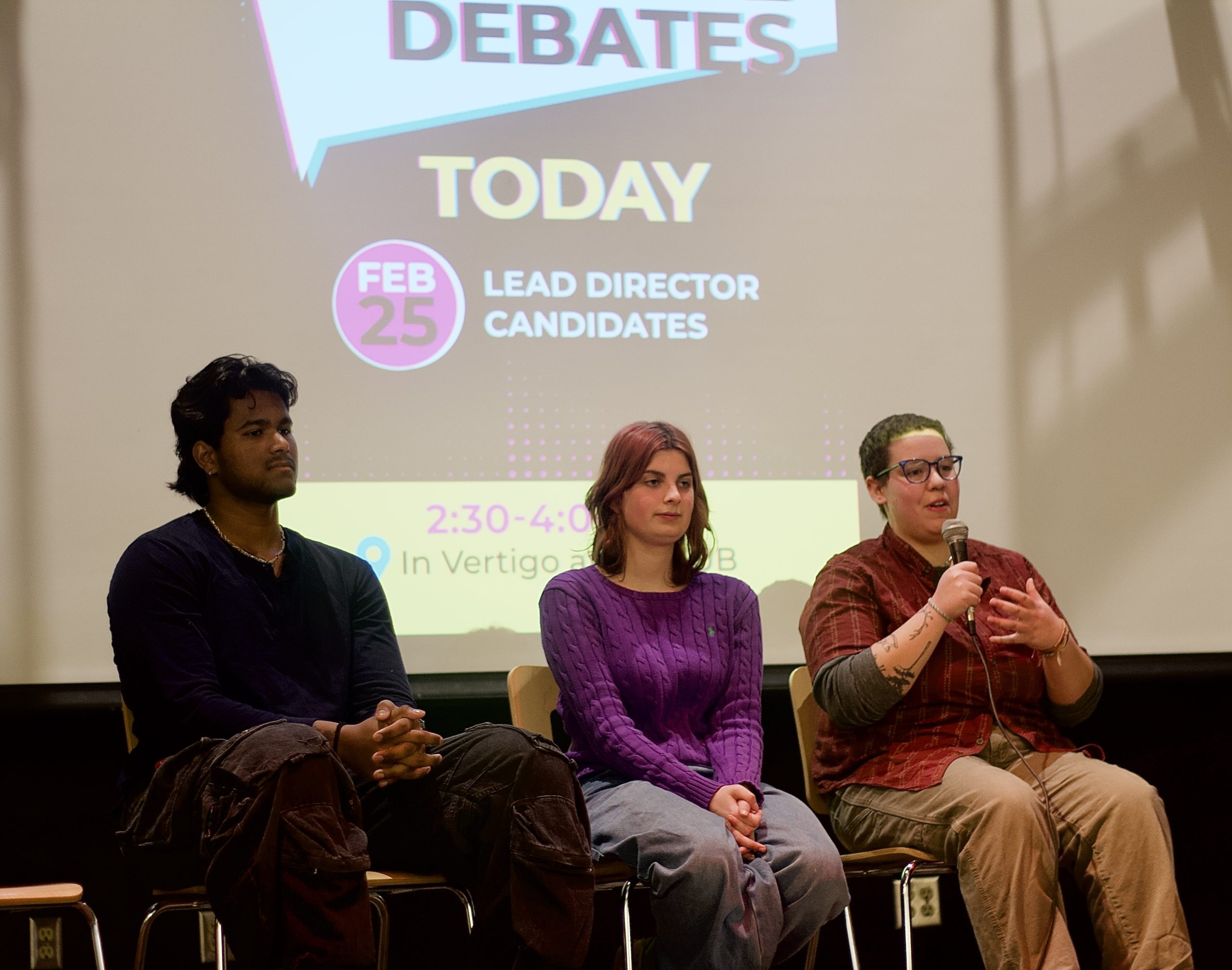Can a raisin help you find your happy place? At UVic’s IdeaFest, Cindy Player, director of Equity and Human Rights, organized a happiness panel to find out. This is where Henri Lock, one of the four panellists, introduced his “Raisin Method” as a way to inner peace.
Pick up a raisin — right now. Stop thinking I’m crazy. Just look at it. Smell it as if you’ve never experienced a raisin before. Squish it—listen to the excited burst of juices. When it’s near your mouth, pay attention to your impulse to bite it.
Once you bite it, feel that tiny explosion of taste. Chew, swallow, feel. Notice the aftertaste lingering in your mouth. Happiness is about slowing down and appreciating the simple things.
In university, it’s easy to get devoured in the daily grind of a caffeine-fuelled lifestyle. Lock says that sometimes, “you just need to let it go. That simple action of taking in a breath and observing it takes it off this train that is running away on us.” Instead of attributing anxiety to something bad, “feel what the anxiety feels like . . . breathe into it . . . just observing it . . . that actually reduces the effect.” Unfortunately, this breathing method doesn’t write the exam for us, but it can change the way we relate to the feeling.
If you’re looking for other ways to manage stress, try volunteering. According to the report “Doing Good is Good For You: 2013 Health and Volunteering Study,” carried out by Harris Interactive on behalf of UnitedHealth Group and the Optum Institute, people who volunteer feel more capable of dealing with anxiety. Simultaneously, they feel more deeply connected to their communities and others. When helping people, they feel valued, taking the focus off of their own problems. But before encouraging all your friends to sign up, keep in mind that when forced, volunteering doesn’t reap the same benefits. If it takes away from other priorities, it adds stress.
What about when we’re not drowning in essay hell? Presenter John Meldrum advised being conscious of the things that actually make us happy. Happiness is so subjective, after all. If you want to watch Netflix instead of going to that party, then goddammit, watch Netflix! Find what really makes you happy, and you can’t go wrong.
But happiness isn’t always individual. John Morris, a specialist who spoke on mental health, emphasized the idea of groups as being more effective in creating a mentally healthy population. He told us that we are “active agents in designing these communities.” If campuses are inhabited by people who look out for each other, they can be positive environments that prioritize wellness instead of isolation.
Denmark is a good model to follow, according to the “World Happiness Report” shown in Merwan Engineer’s lecture. It’s the happiest place on earth — sorry, Disneyland! An important reason is that its members genuinely feel a sense of responsibility towards one another, and not just for self-benefit. This makes for a country with a strong volunteering population.
Through volunteering, you learn to be grateful for what you have. David Steindl-Rast, a Benedictine monk, said that “it is not happiness that makes us grateful; it’s gratefulness that makes us happy.” His concept of “STOP, LOOK, DO” means to stop where you are, and take the time to step out of your regular routine. Look around and appreciate what you have . . .
. . . even if it’s just a raisin.








